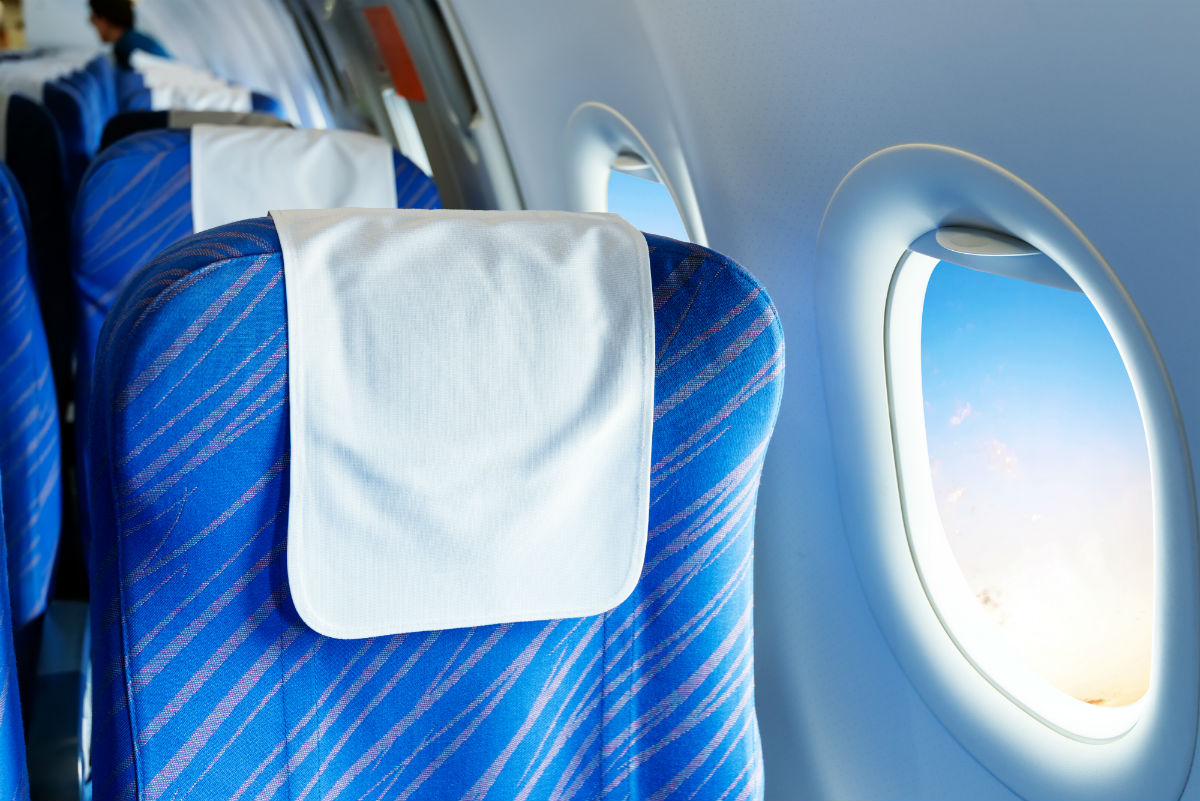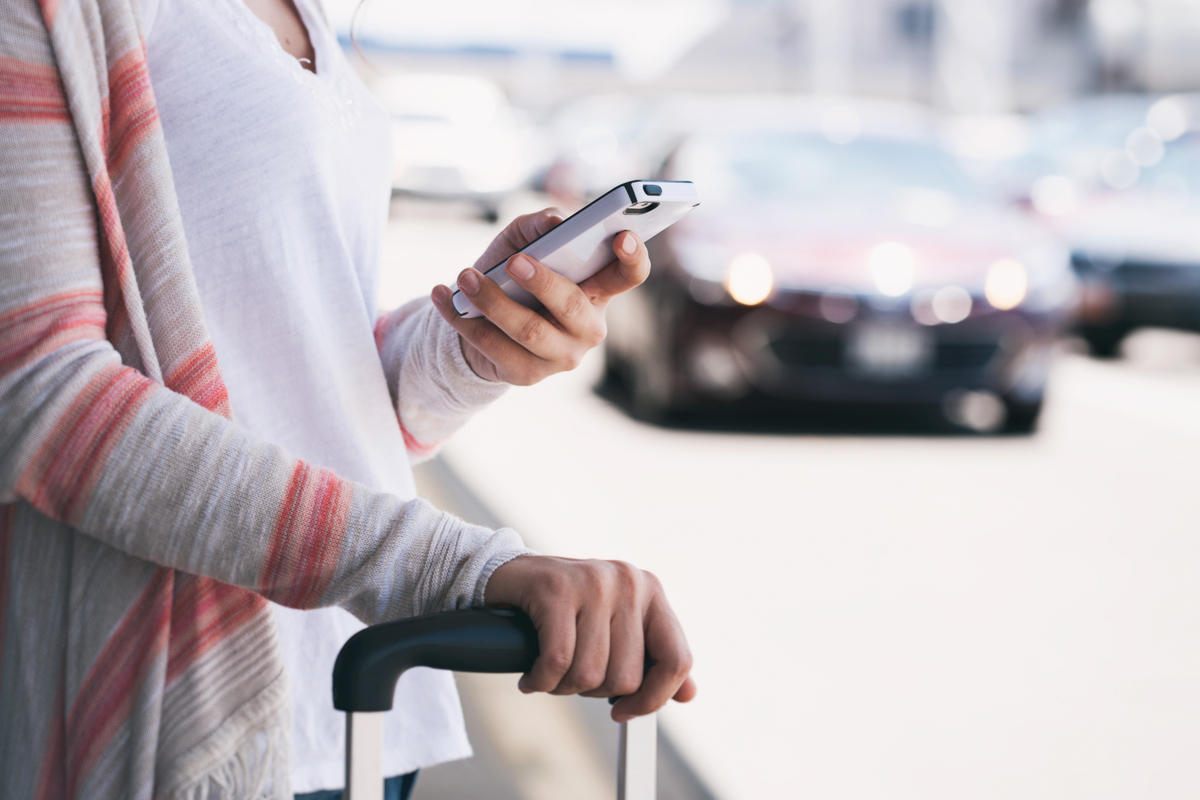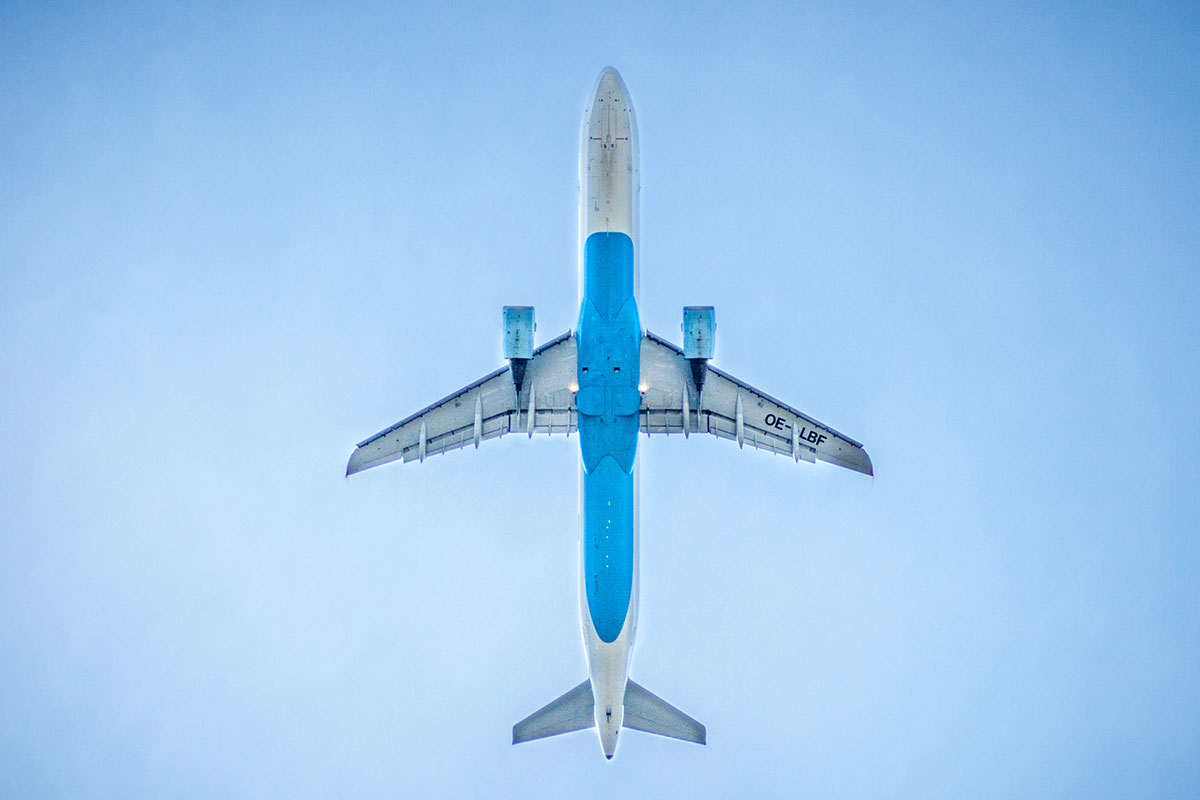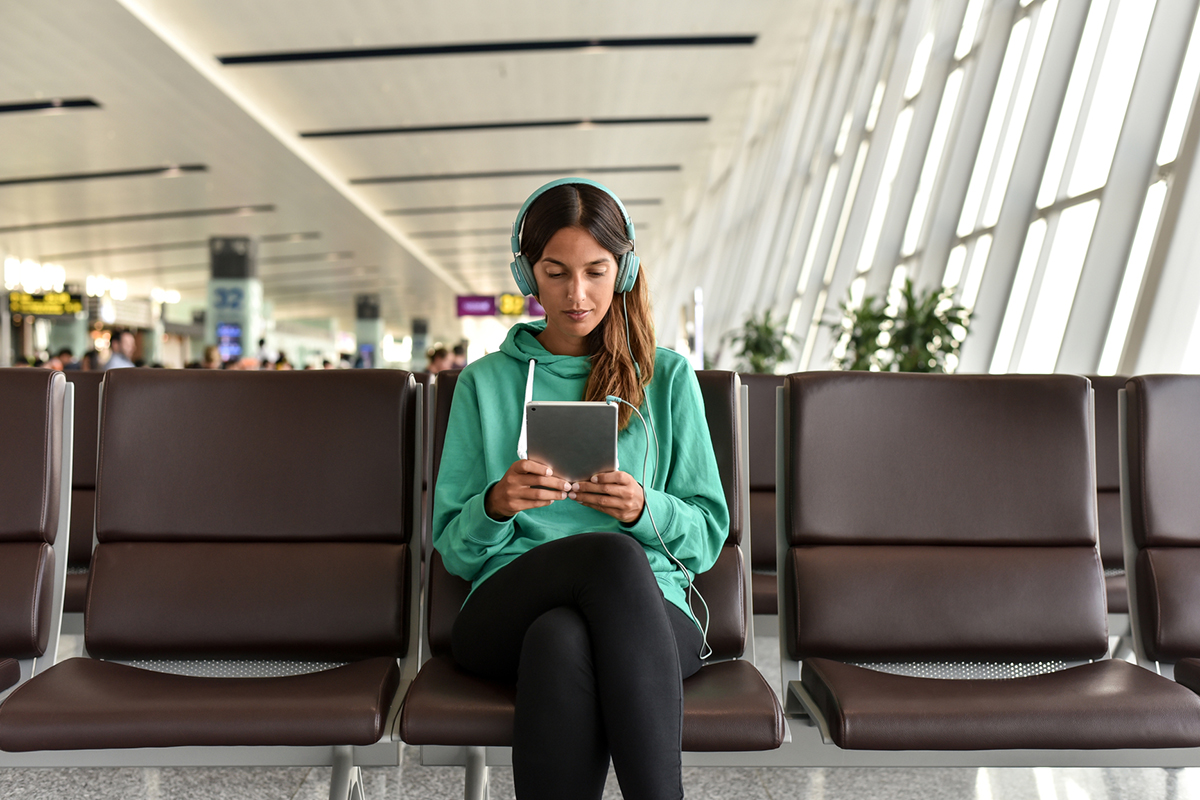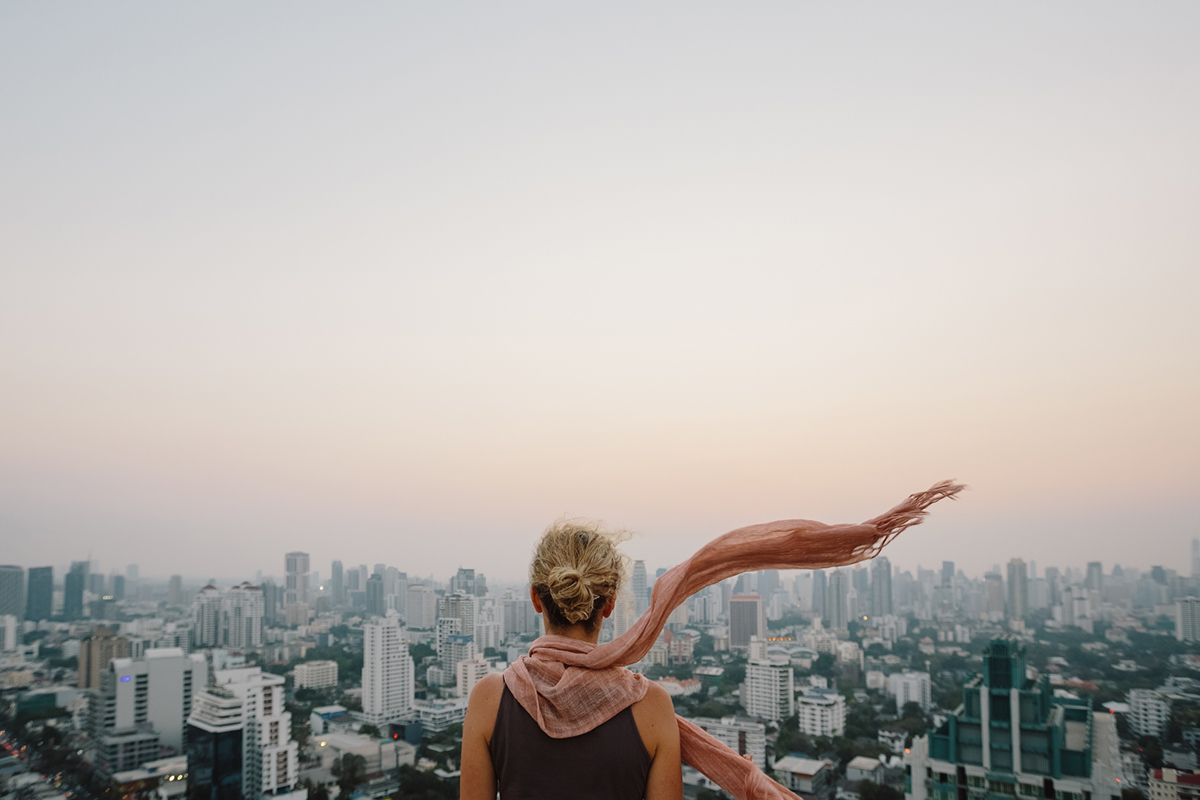A sense of adventure can take you all kinds of interesting places, but covering all of that distance—seated in a plane or in a car—can pose a potential risk to your health.
If you’ve ever deplaned and felt like your legs just weren’t your own, there’s a reason. Limbs can become swollen, misshapen or sore after a long period of sitting because being inactive for many hours slows circulation and can cause fluid to pool in our tissues. Getting up to move around can help shake out the pooling, which is why this often dissipates after a couple of hours of wandering an airport and your destination.
While it often takes many, many hours for the risk to become substantial, it’s worth preempting potential pitfalls by preparing ahead. Many vein health experts extol the virtues of compression gear to help maintain good circulation during travel.
What do compression socks do?
Compression clothing—think socks, armbands and leggings—steadily squeezes your limbs, which helps to keep blood moving consistently through your veins and can help to prevent muscle cramps. Compressions socks have the following benefits:
- Reduced risk of travel-related blood clots
- Reduced leg swelling
- Prevent varicose vein complications
- Prevent future vein disorders.
Compression socks can reduce the risk of travel-related blood clots
“Anyone can be prone to deep vein thrombosis [DVT] during long-distance travel, even young, healthy people,” says Dr. Nisha Bunke of La Jolla Vein Care. DVT occurs when a blood clot, a gelatinous mass of platelets, forms within a vein and prevents the rest of your blood from moving past. Think of it like a traffic jam getting onto a highway onramp: nothing moves as smoothly as it should, which can create a backup, which means swelling and potentially pain.
“Compression socks help to prevent blood from pooling and forming clots in the leg veins, and helps to move the blood in the leg veins back to the heart,” she says.
“Young women who use oral contraceptives are at an increased risk, as well as those who have had recent leg injuries or surgery,” Dr. Bunke explains. Pregnant women, obese individuals and those with inherited blood clotting disorders are also at higher risk for developing blood clots on a regular day; combined with prolonged periods of sitting, the chance of developing a blood clot in the legs increases.
In rare cases, DVT can pose a serious health risk as blood clots in your veins may break loose and travel to other parts of the body, like your lungs, impeding blood flow and stopping organ function.
Compression socks can reduce leg swelling
When veins are supported and more able to let blood pass through, the chances of fluid and blood backing up goes down.
“Socks prevent fluid from collecting in feet, ankles and calves,” Dr. Bunke explains. If fluid is allowed to move, it won’t pool, which won’t cause that traffic jam and reduces pressure on the insides of your legs.
Compression socks can help prevent complications from varicose veins
Varicose veins occur when blood collects behind the small valves in a vein instead of flowing smoothly back to the heart. They are more common in the legs and feet, because blood returning to the heart has a longer way to travel.
“If you already have varicose veins, compression gear can reduce the risk of complications like a varicose vein rupture or superficial phlebitis,” says Dr. Bunke. A rupture can be quite painful; superficial phlebitis is an inflamed vein that’s having trouble emptying, and these can be the ones seen in purples and blues on calves and feet. Compression socks can help stop varicose veins from getting worse and at a minimum, they’ll help reduce discomfort.
Compression socks can help prevent future vein disorders.
If you travel often, you may be a risk for developing a chronic vein disorder. (It’s a question of frequency of exposure to long periods of sitting and airplane pressure.) Dr. Bunke recommends compression socks as a preventative measure against developing future vein problems. Supporting your veins and muscles to work efficiently will decrease the chances of blood pooling and veins collapsing from increased stress.
A pair of compression socks can go a long way in helping support long-term vein health and making your travel time less stressful on your body. If you hate the idea of wearing them to and from the airport, pack them in your carry-on and put them on once you’re in your seat.

